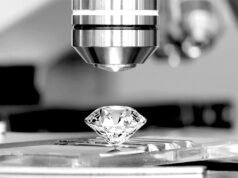When you’re eating a ketogenic diet, you want to be in optimal ketosis (aka, blood ketosis), since that’s the only form of ketones your body is actually using for energy. If you’re not, you’ll suffer from keto-flu (aka, the “K-fever”) which can cause brain fog, fatigue, nausea, headaches, muscle aches, insomnia, and even depression. Here’s how to get into optimal ketosis, how to stay there, and why.
You’ve been lifting weights, adding cardio to your routine and eating clean for months, and it’s time to reach your goals. Now what? If you’ve never been in a state of nutritional ketosis before, you may be wondering how to push yourself into optimal ketosis and maximize fat loss.

How can you get into a state of ketosis that is optimum for you? What are your options if you are unable to reduce weight? How long does fatty liver take to return? And why aren’t you shedding fat even if you’re losing weight?
Get the answers to these questions and more in my Q&A this week.
Please keep in mind that these responses do not constitute medical advice or the formation of a doctor-patient relationship. These responses are meant to be basic guidelines; any modifications should be discussed with your doctor.
How can you get into a state of ketosis that is optimum for you?
I can’t seem to go into ketosis. I followed the keto diet for 30 days, eating fewer than 20 grams of carbohydrates (typically no more than 17), 30 to 56 grams of protein, and 76 grams of fat. I seldom consume more than 900 calories, but that is due to the fact that I am 58 years old and have a fairly sedentary lifestyle.
According to my study, I should be in optimum ketosis and shedding a lot of weight. My weight fell by 4 kg in 30 days (I’m not in a rush, but I’m surprised it wasn’t more), and my maximum blood ketone level (after half a fast) was 1.4 mmol/l – usually it’s less than 1. Not at all like the “magic three” I’d heard about. I typically eat IF, with breakfast around 11 a.m. and dinner between 3 and 5 p.m. I eat anything that isn’t water as a snack. To count and weigh everything, I use the Carbohydrate Manager program. The protein reduction was the most difficult component. Please tell me what I need to do to go into ketosis!
Thank you, thank you, thank you, thank you, thank you, thank you, thank you, thank you, thank you, you you, thank
Eliza That is an excellent question. The simple answer is that for weight reduction and general health, there is no optimum amount of ketosis. It’s a notion derived from the therapy of epileptic convulsions that may be used to particular treatments like Alzheimer’s disease, brain tumors, and other research topics. However, there is no evidence that more ketones are beneficial for general health or weight reduction.
Bret Sher, M.D.
I haven’t lost any weight. So, what should I do now?
I’ve been following a ketogenic diet since January 1st and haven’t dropped any weight or inches. What can I do to make this adjustment so that I can reduce weight and inches?
Kim Greetings, Kim
It occurs often. It’s discouraging to witness all of those incredible success stories and not get the same results for yourself. I’ve figured it out. First, read our guide on setting realistic expectations, since everyone’s journey to health is unique.
Second, although we don’t suggest tracking calories or macros in general, knowing grams of carbohydrates and total calories may be useful in the beginning since our perceptions can sometimes vary from reality.
Also, consider enrolling in our Weight Loss Forever course, which will assist you in honing your efforts.
I hope these pointers assist you in getting back on track to success!
Best wishes, Sher, Bret.
How long does the LCHF diet take to cure non-alcoholic fatty liver disease?
With a fish-based diet, how long does it typically take for non-alcoholic fatty liver disease to go away?
Douglas That is an excellent question. It all depends on how you define success. Within weeks, laboratory markers of liver function, especially ALT, should improve, although it may take many months for them to return to normal. Ultrasound of the fatty liver reacts more slowly, taking several months to provide a reaction and up to a year or more to fully cure the issue. The majority of these are evidence-based, and we anticipate that more successful research will be released in the near future.
Best of luck! Sher, Bret.
The amount of body fat that is lost does not diminish, but the amount of weight that is lost does.
My weight has dropped by 1.6 kg each week on average, but my body fat percentage remains at 33%.
I began a low-carb diet a week ago and have been on a keto diet for three weeks. It’s working, but my fat percentage isn’t decreasing; does anybody have any suggestions?
Abba My first concern is how body fat is calculated. DEXA is the gold standard, although there are numerous alternative methods to assess it. Just keep in mind that they all differ from one exam to the next. As a result, if the differences are little, they may be lost in the variability.
But then there’s the issue of what you’re doing to gain lean muscle mass. A low-carb diet, sufficient protein, and frequent strength training are, in my view, the greatest ways to reduce fat and build muscle. Try our Let’s Move class if you’re new to exercising. Best regards, Sher, Bret.
Other inquiries and responses
There will be a lot of questions and answers after that:
Low Carbohydrate Diet Questions and Answers
Related Tags
This article broadly covered the following related topics:
- how to get into ketosis in 24 hours
- how long does it take to get into ketosis
- how long to get into ketosis
- fasting to get into ketosis
- how to achieve ketosis



